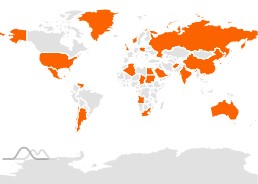Written by Patty Templeton
The University of Illinois at Urbana-Champaign held its first classes in March of 1868. Two years later, women were allowed to attend classes. The early days of the university coincided with the battle for women’s suffrage. Women in Illinois wouldn’t secure the right to vote for another 45 years (1913). It would take another seven years before the Nineteenth Amendment was fully ratified ensuring, “The right of citizens of the United States to vote shall not be denied or abridged by the United States or by any State on account of sex.”
Women’s suffrage is a part of the the first-wave of feminism in the United States. Concerns of first-wave feminism included women’s right to vote in all elections, women’s bodies not being considered as their husband’s property, and women attaining equal contract and property rights. This first-wave of feminism began on 1848 with the first women’s rights convention, the Seneca Falls Gathering, and ended with the adoption of the Nineteenth Amendment in 1920.
Gathered here is a good starting point in examining first-wave feminism as experienced by UIUC students. These materials connect to themes of feminism, suffrage, and the view of women on campus.

The Alethenai Society (RS 41/75/2) was a literary society for women founded in 1871. The above Alethenai Stunt photo (ID 0002367) depicts the society dressed for women’s rights as part of the May Fete Stunt Show.

“Hurray for Petticoats, Down with Trousers” (ID 0002360) is an undated photograph, circa 1909-1914, of men in dresses taking part in the Interscholastic Circus, holding a sign that says, “Hurray for Petticoats, Down with Trousers!”
Board of Trustees Meetings Biennial Reports, 1867-2011, are available as digital surrogates (ID 8a02d470-9299-0131-1105-0050569601ca-8). The August 26, 1870 meeting discusses allowing females to apply in the upcoming school year stating, “…be it Resolved, That the Regent and faculty be authorized to admit to the classes of this institution for instruction, such female students of proper qualifications, as may apply; provided they be first satisfied that the parents and guardians have provided for them proper homes.” The names of Ayes (5) and Noes (4) are recorded for the resolution.
The early years of the Score Club (RS 48/3/7) reflect a focus on women’s suffrage in addition to an interest in music.
Thomas Arkle Clark was a professor of English (1893-99), the dean of undergraduates (1901-09), and dean of men (1909-1931) at UIUC. Keyword searching the Thomas A Clark papers (RS 41/2/20) for terms such as “lady,” “ladies,” “woman,” “women,” and “girl” will bring up articles and manuscripts that reflect the opinions of women and women on campus written by a university administrator.
Researchers can keyword search digitized versions of the Daily Illini to ascertain the student reaction to and events about to women’s suffrage. The earliest Daily Illini appearance of the term “suffrage” appears in the May 1, 1879 edition in an article titled, “Woman’s Rights; Their Opposition, Development and Effects.” There are 448 mentions of the term “suffrage” between 1870 – 1921. Searching in that date range for terms such as “female,” “women,” “ladies,” “lady,” and other related terms also may prove helpful. Researchers can also expand this search past the Daily Illini to Champaign-Urbana or Illinois newspapers.
Make sure to check out resources on women’s suffrage located at the University Archives in the Main Library, as well! For example, in the Illinois Library Association Correspondence (RS 35/1/16), in the Louise B. Dunbar Papers (RS 15/13/36), the Maurice T. Price Papers (RS 15/21/20), in the Louisa A. Gregory Notebooks (RS 2/1/4), and in the General Correspondence 1919 – 1930 (RS 2/6/1).
Note: This is a starting points for women’s suffrage resources held within the Student Life and Culture Archives. The SLC has a large amount of materials on women’s personal history at UIUC – from scrapbooks to photos to papers. Contact an archivist if you have questions about record series on early women who were students, teachers, and administrators at UIUC.
